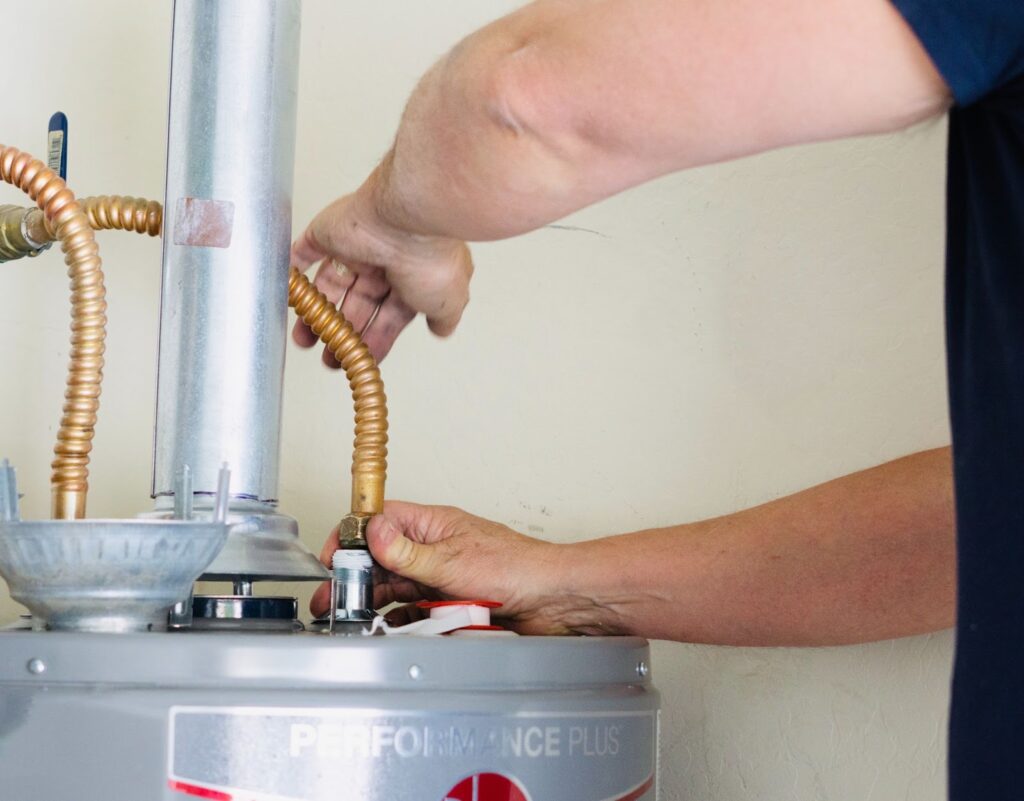
5 Signs It’s Time to Replace Your Water Heater
Your water heater is an essential appliance that provides hot water for bathing, cooking, cleaning, and other household activities. However, like any other appliance, water heaters have a limited lifespan and may require replacement over time. Recognizing the signs of a failing water heater can help you avoid unexpected breakdowns and costly repairs. In this comprehensive guide, we’ll discuss five common signs indicating it’s time to replace your water heater, empowering you to make informed decisions and ensure uninterrupted hot water supply in your home.
Understanding Water Heater Types
Before delving into the signs indicating the need for replacement, it’s essential to understand the different types of water heaters available. Traditional tank-style water heaters store hot water in a large tank and are the most common type found in homes. Tankless water heaters, also known as on-demand or instantaneous water heaters, heat water directly without the use of a storage tank. Heat pump water heaters and solar water heaters are alternative options that use renewable energy sources to heat water, offering energy-efficient and environmentally friendly solutions. Understanding the pros and cons of each type can help you choose the right water heater for your home’s specific needs and preferences.
Signs to Replace Your Water Heater
Age of the Water Heater
One of the primary indicators that it’s time to replace your water heater is its age. Most traditional tank-style water heaters have a lifespan of around 8 to 12 years. If your water heater is nearing or has exceeded this age range, it may be prone to leaks, corrosion, and other issues. As water heaters age, sediment buildup inside the tank can affect heating efficiency and lead to decreased performance. Consider replacing your water heater proactively if it’s reaching the end of its expected lifespan to avoid sudden failures and water damage.
Rusty or Discolored Water
Another telltale sign of a failing water heater is rusty or discolored water coming from your taps. This discoloration is often caused by corrosion inside the tank, indicating that the water heater’s internal components are deteriorating. Rusty water not only looks unappealing but can also stain your clothes, dishes, and plumbing fixtures. Additionally, rust buildup can weaken the tank and eventually lead to leaks or ruptures. If you notice rusty or discolored water when running hot water from your taps, it’s a clear indication that your water heater may need replacement.
Inadequate Hot Water Supply
If you find yourself running out of hot water more frequently or experiencing inconsistent water temperatures, it may be time to replace your water heater. Over time, sediment buildup, mineral deposits, and corrosion can reduce the efficiency of your water heater, resulting in decreased hot water output. Aging heating elements or malfunctioning thermostats can also contribute to inadequate hot water supply. If you’re constantly adjusting the temperature settings or waiting for hot water to replenish, it’s advisable to replace your water heater with a newer, more efficient model to meet your household’s hot water demands.
Loud Noises or Unusual Sounds
Unusual noises coming from your water heater, such as popping, banging, or rumbling sounds, are often indicators of sediment buildup inside the tank. As sediment accumulates at the bottom of the tank, it creates pockets of trapped air that produce these noises when heated. Ignoring these sounds can lead to overheating, reduced efficiency, and potential damage to the tank. If you hear loud noises emanating from your water heater during operation, it’s a sign that maintenance or replacement may be necessary to prevent further issues and ensure smooth operation.
Physical Damage and Corrosion
In addition to age-related deterioration and internal issues, physical damage and corrosion can also signal the need for water heater replacement. External signs of damage, such as dents, cracks, or rust spots on the tank, are clear indicators of structural weakening. Corrosion, whether visible on the tank’s surface or within the plumbing connections, compromises the unit’s integrity and increases the risk of leaks or ruptures. If you observe any signs of physical damage or corrosion on your water heater, it’s crucial to address them promptly to prevent further deterioration and ensure the safety of your household.
Environmental and Efficiency Considerations
In addition to the signs mentioned above, it’s essential to consider the environmental and efficiency implications of your water heater. Older water heaters may be less energy-efficient, leading to higher utility bills and increased carbon emissions. By upgrading to a newer, more energy-efficient model, you can reduce your home’s energy consumption, lower utility costs, and minimize your environmental footprint. Tankless and heat pump water heaters are particularly energy-efficient options that can provide significant savings over time while reducing greenhouse gas emissions.
Invest in a Safe, New Water Heater for Your Home
Your water heater plays a crucial role in your daily comfort and convenience, providing hot water for various household activities. Recognizing the signs of a failing water heater can help you take proactive measures to replace the unit before it causes inconvenience, damage, or safety hazards. Whether it’s age-related deterioration, rusty water, inadequate hot water supply, unusual noises, or visible leaks, paying attention to these warning signs can save you from unexpected disruptions and costly repairs down the line. By investing in a new, energy-efficient water heater, you can enjoy reliable hot water supply and peace of mind for years to come.
Learn about Heating Services in Needham, MA, and more in our Kerivan-Lane blog today!
